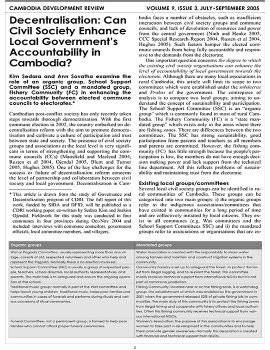KIM Sedara
Former Senior Research Fellow
Email : NA

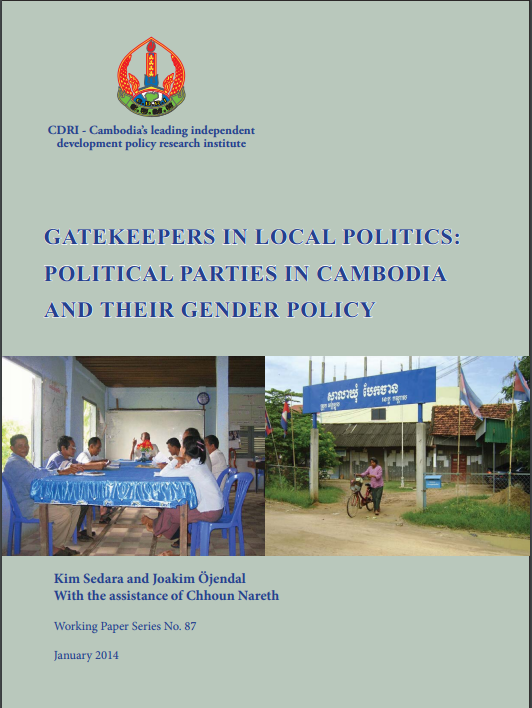
Gender issues have become a part of mainstream Cambodian politics over the last decade, and gender-neutral electoral systems have been developed in cooperation between donors and government. Female representation has been achieved primarily through direct and indirect elections at different levels. And although Cambodia is a male-dom...
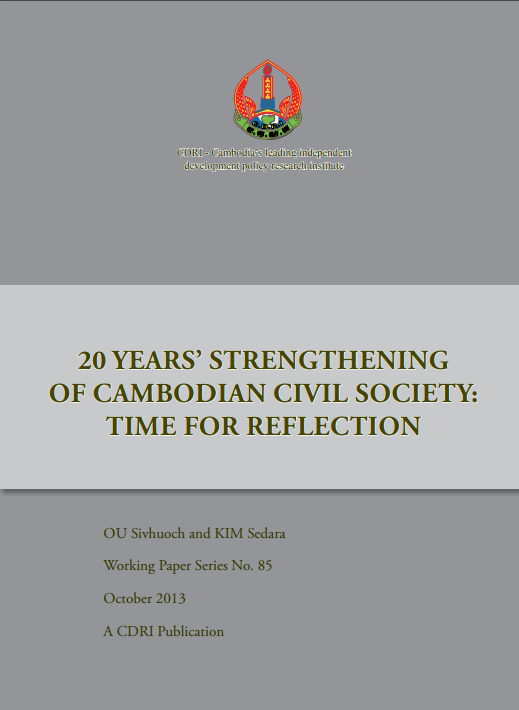
In the 1980s and 1990s a large number of NGOs emerged in Cambodia, primarily in response to donors’ agendas on strengthening civil society to curb repressive developing country governments and support a broad democratisation process. Over the last 20 years, donor money has been concentrated on funding a small group of NGOs, mostly located in the co...
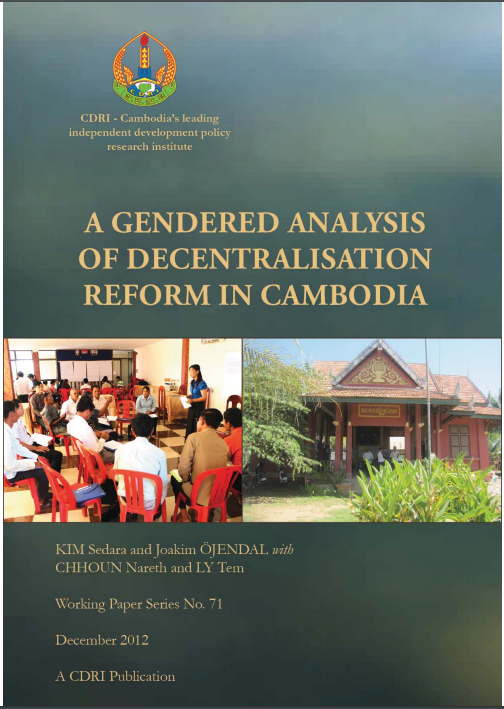
The commune/sangkat elections in 2002 and 2007 marked a significant step forward in Cambodia’s democratic decentralisation process. Decentralisation is the most deep-cutting public sector reform and the politically most important democratic development in Cambodia. The reform rearranges power structures, creates space for a more pluralistic pol...
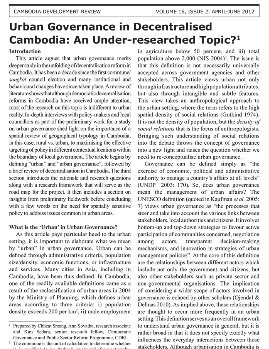
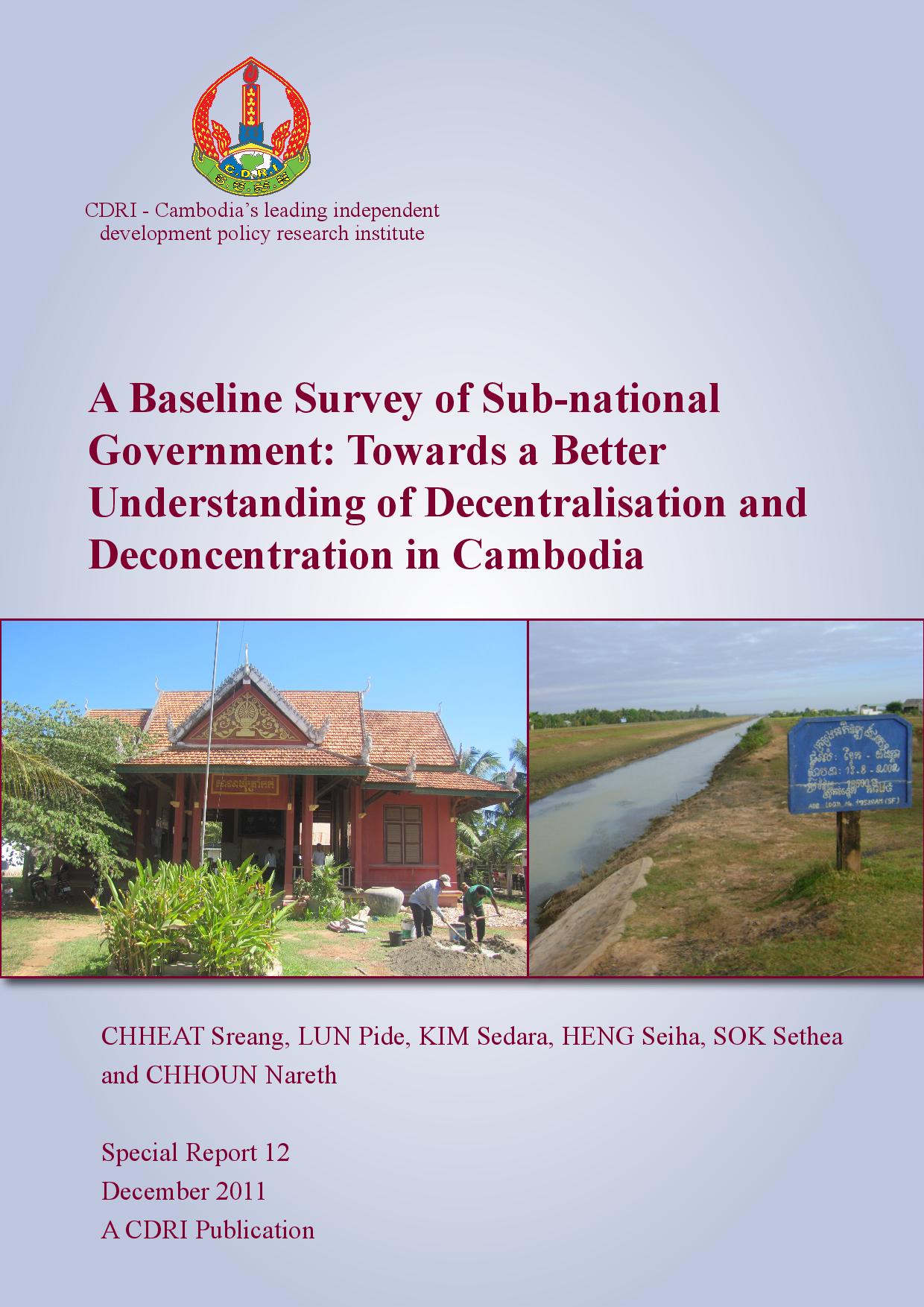
The district and provincial council elections in May 2009, for the first time, offered communes the opportunity to choose councillors from whom they can demand accountability, and introduced a new relationship between commune councillors and higher councils. The main goal of this survey is to gauge the view of commune and district councillors and d...
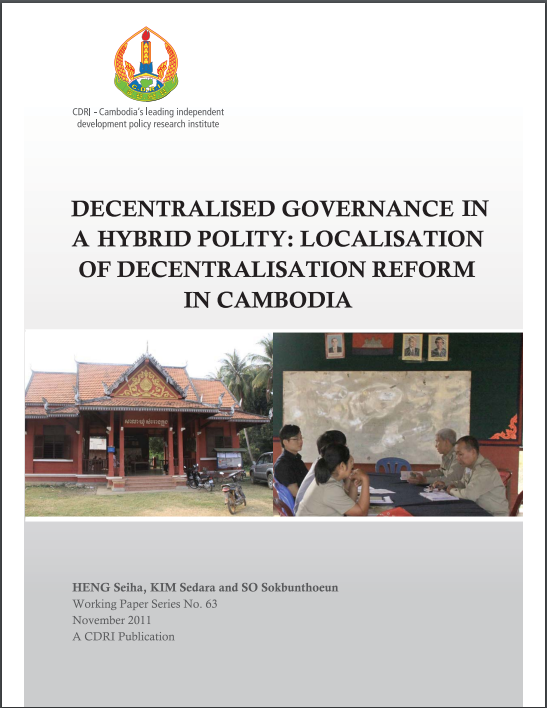
This paper reviews the progress of the decentralisation and deconcentration (D&D) reform in Cambodia. It revisits the conflicting positive and negative views on the achievements of the reform in the literature. The goal of the reform is twofold: promotion of local democracy and improvement of local service delivery. Both of these goals are the...
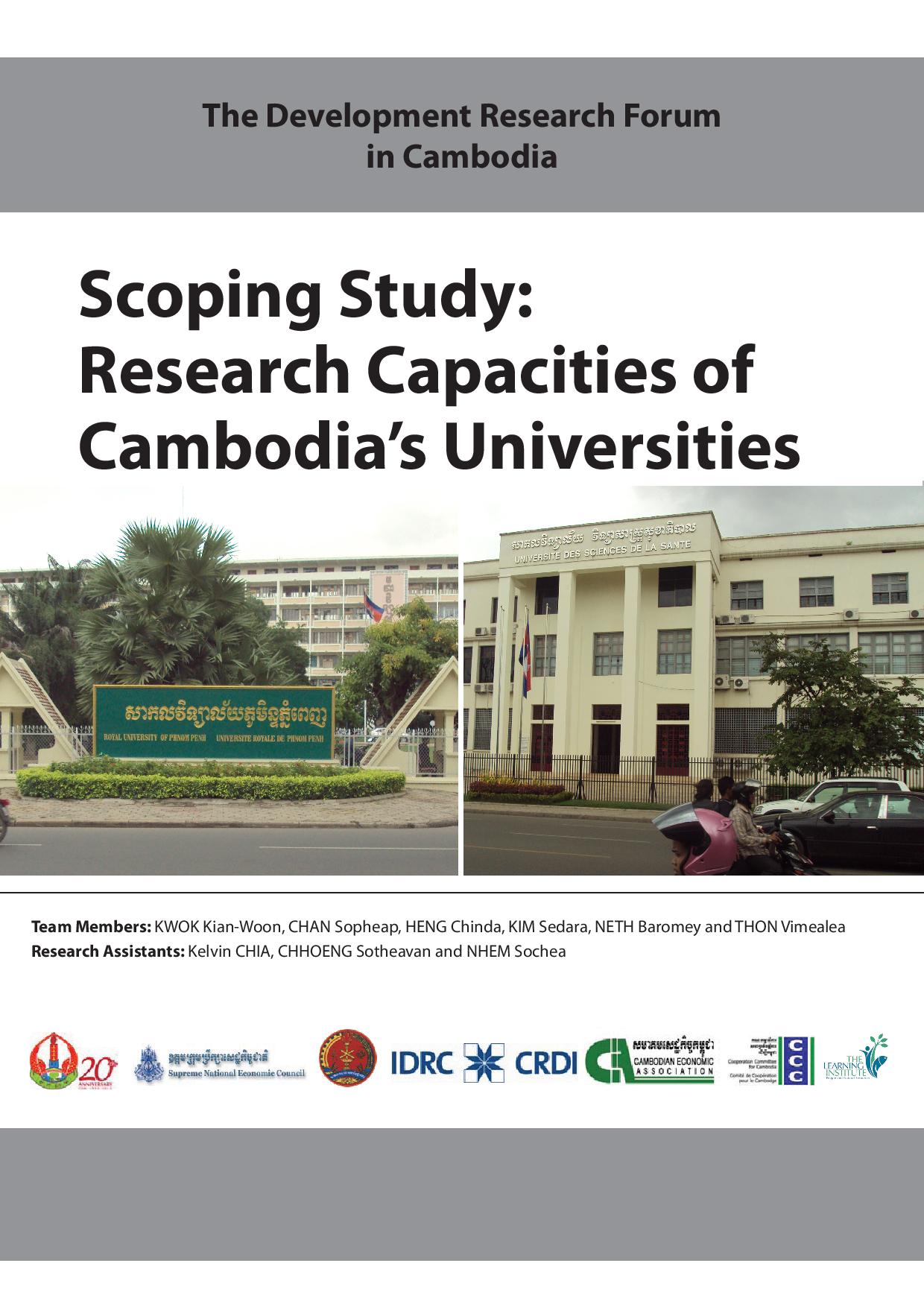
This study tries to map the current state of research in selected Cambodian universities, with special focus on research capacities – the factors that facilitate (or hinder) research, especially applied research with a direct relevance to Cambodia’s development challenges. It seeks also to identify opportunities to seed development research through...
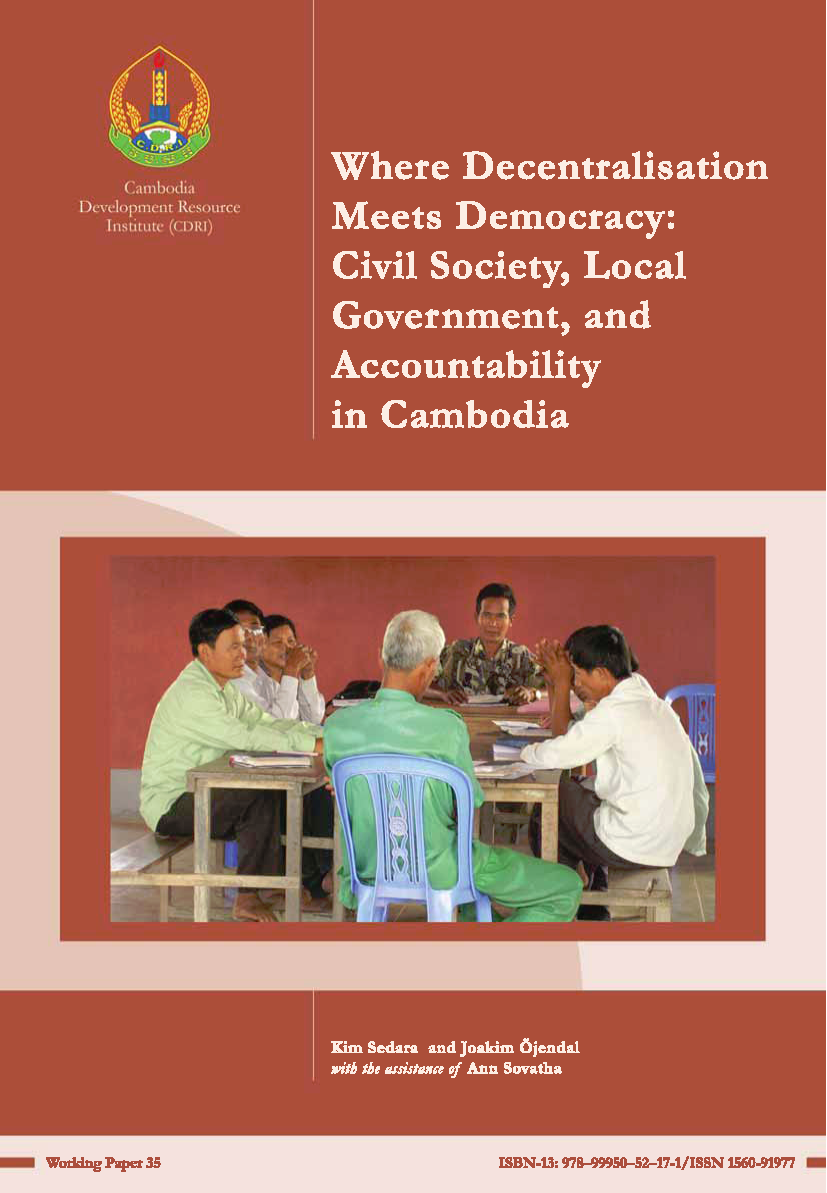
This working paper explores the intersection of decentralisation and democratic development in Cambodia, focusing on the role of community-based organisations (CBOs) in enhancing local government accountability. Drawing on field research in five communes, the study examines three types of CBOs—School Support Committees (SSCs), Forestry Communities...
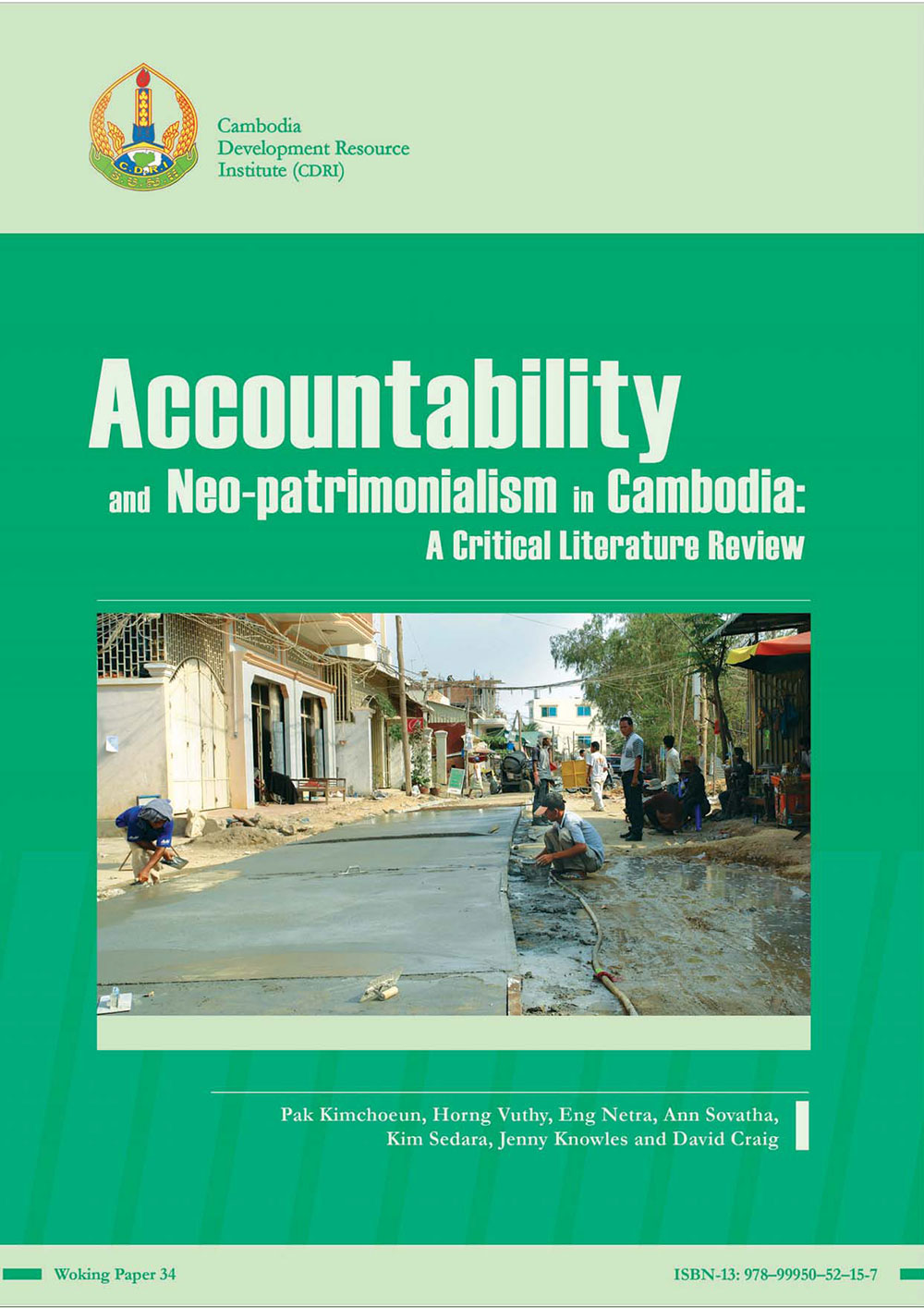
This working paper critically examines the concept of accountability within Cambodia’s evolving governance landscape, particularly in the context of decentralisation and deconcentration reforms. Drawing on international public administration theories and Cambodia’s unique socio-political history, the paper explores how traditional patron-client...
